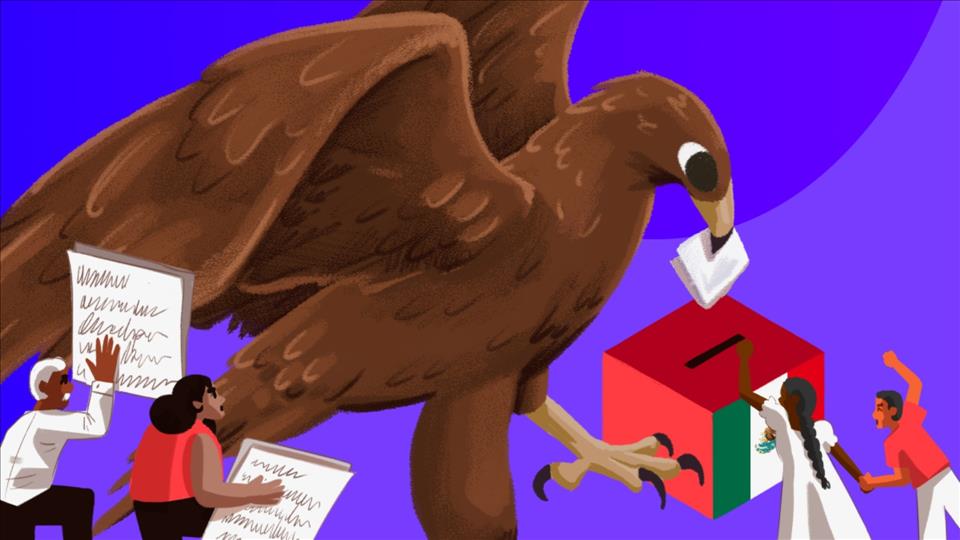(MENAFN- Swissinfo)
Español
(es)
breve historia de la democracia directa en méxico (original) Following multiple reforms to the constitution and secondary laws, the Mexican political system has managed to transition from a semi-authoritarian hegemonic party regime to an alternating democracy in which electoral processes take place normally.
The Mexican transition stands out for having overcome the single-party stage, electoral fraud and outbreaks of social conflict – with a good dose of violence – triggered by citizens' discontent at the way the official party and its government cheated each time elections were held.
Elections were a problem, not a solution.
But thanks to step-by-step reforms backed by a broad consensus among political forces, and enhanced by input from academia and society, Mexico overcame that stage and today has a functional electoral democracy. This has gradually resulted in election days taking place without major conflict, electoral disputes being resolved in the courts, and an unprecedented degree of political alternation.
swissinfo.ch
Nonetheless, electoral democracy has not solved the country's longstanding problems, which, in many cases, have been exacerbated despite the legitimacy of the freely elected governments. These are in particular insecurity, violence, poverty and inequality.
Dissatisfaction with democracy has grown and, with it, the grievances of millions of citizens who do not feel represented by political parties, lawmakers and elected officials, and who have been demanding new forms of political participation.
Against this backdrop, myriad citizen movements and expressions of discontent have emerged in recent years, calling for mechanisms of participation that do not rely on a party system that they distrust.
Perhaps the most significant expression of this citizen malaise occurred in 2009, when a group of young people rallied voters to cast blank, null or spoiled ballots in the mid-term federal elections to renew the Chamber of Deputies.
Following a campaign by citizen groups across the country, 1.8 million people annulled their ballot or left it blank in the elections that were held on June 5, 2009; that is, 5% of all those who voted on that day. This represented an important breakthrough, since null votes had historically stood at around 2% of nationwide voting.
After this, the instigators of the null-vote campaign went on to organise the National Citizens' Assembly (known by its Spanish acronym, ANCA), which laboured for months to produce a political reform proposal which it submitted to the federal government and which included several mechanisms of direct democracy; after a long negotiation process these were incorporated into the Mexican Constitution in 2012, the last year of President Felipe Calderón's six-year term of office. They were: 1. independent or non-partisan candidacies; 2. citizens' initiatives; 3. public consultations; and 4. the consecutive re-election of lawmakers and mayors, as a means for the electorate to monitor the actions of public servants and hold them accountable.






















Comments
No comment